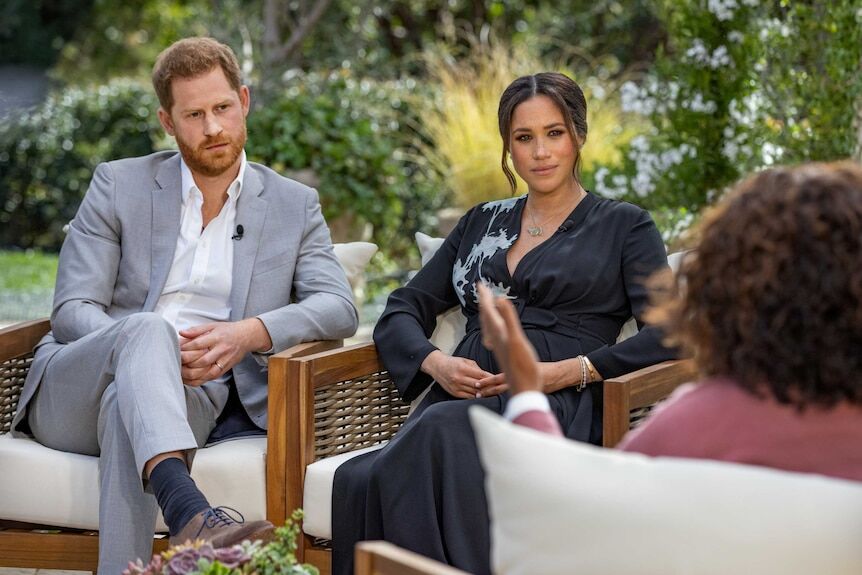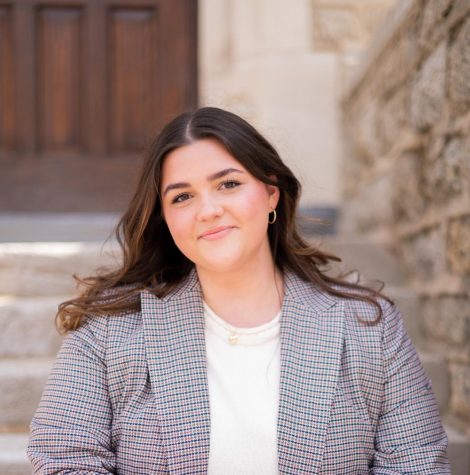The Oprah Effect: Influencing the Media and the Monarchy
Oprah Winfrey conducted a tell-all interview concerning the royal family.
March 17, 2021
Oprah Winfrey’s Sunday night interview with Meghan and Harry was raw, shocking and let the public in on what it is actually like to be a royal. Spoiler alert: not everything is as it seems, and Markle’s time in the palace was definitely not like Anne Hathaway’s experience in “The Princess Diaries.”
The similarities between Markle and Princess Diana’s telling of the press is uncanny. And, as Harry pointed out in the interview, he did not want his mother’s history to repeat itself for his wife. While there are many similarities, Markle’s received racial discrimination in tabloids adds a whole new element to the mix that escalates the concern for privacy, security and mental health.
Beyond the twisted stories and obsessive narratives in the media, Markle spoke on legitimate problems within the royal family. The denial to help while her mental health plummeted and conversations surrounding her child’s race were the most alarming. The so-called protection that the royal family gives to its members who are willing to complicit to silence is not sheltered from its own discriminatory practices. As Markle claims she soon realized, the alienating feelings evoked from the media only worsened in the palace, describing it as “insurvivable.” Her mental health crisis worsened to suicidal thoughts and, when she sought help, she was denied resources. There were also several conversations regarding the color of the couple’s children while she was pregnant with Archie, and people in the royal family were expressing concern for what this would mean for their image as a whole. While there were no specific names dropped, Harry did later clarify with Oprah that it was not his grandmother. While many are pointing the finger at Harry’s father, Prince Charles, there is no denying that these questions are proof of a larger issue in the palace’s structure and practice.
The most iconic line to come out of the interview from Oprah was, “Were you silent or were you silenced?” The crashing mental headspace was the result of a politically active woman feeling like she was no longer able to practice what she preaches – female advocacy. It was heartbreaking to watch but also inspiring. What people see as the most glamorous and regal position to be still does not outweigh the compromise of silencing a female voice. The clear determination and passion that Markle had before meeting Harry and still has during this interview is motivational.
While Markle was extremely eloquent, she is of course still met with backlash after the interview. Two people in particular, Piers Morgan and Candace Owens, had a lot to say. Morgan’s well-known obsession with Markle has not stopped since the second she ghosted him when she met Harry. Even after watching the two hour, painfully raw interview, Morgan still said she was contradictory and lying. Owens agrees that she’s lying, but she also felt the need to denigrate someone else’s experience with racial discrimination and claim it is a part of Meghan’s “leftist narcissist” complex. The headlines are out there. They’re plastered on the screen as context in the interview and they’re wildly sexist and racist. Owens later said that she felt unsafe because of her opinion on the interview. This is incredibly ironic, as the media’s extremely hurtful and concerning headlines towards Markle have altered her safety. How can Morgan and Owens call something a blatant lie when they were not there to see it? And at what point will people stop denying women’s stories and start noticing a pattern of compiled experience?
There are two major things that should be taken from this interview. First, the palace has a ton of improvement ahead. There needs to be change, open discussion and critique of heavily outdated practices. Second, we all need to pay more attention to the way women, especially women of color, are portrayed in the media. Question the rhetoric used, the narratives perpetuated and the effects it has on not only that criticized individual, but also the contribution to stereotypical portrayals.











